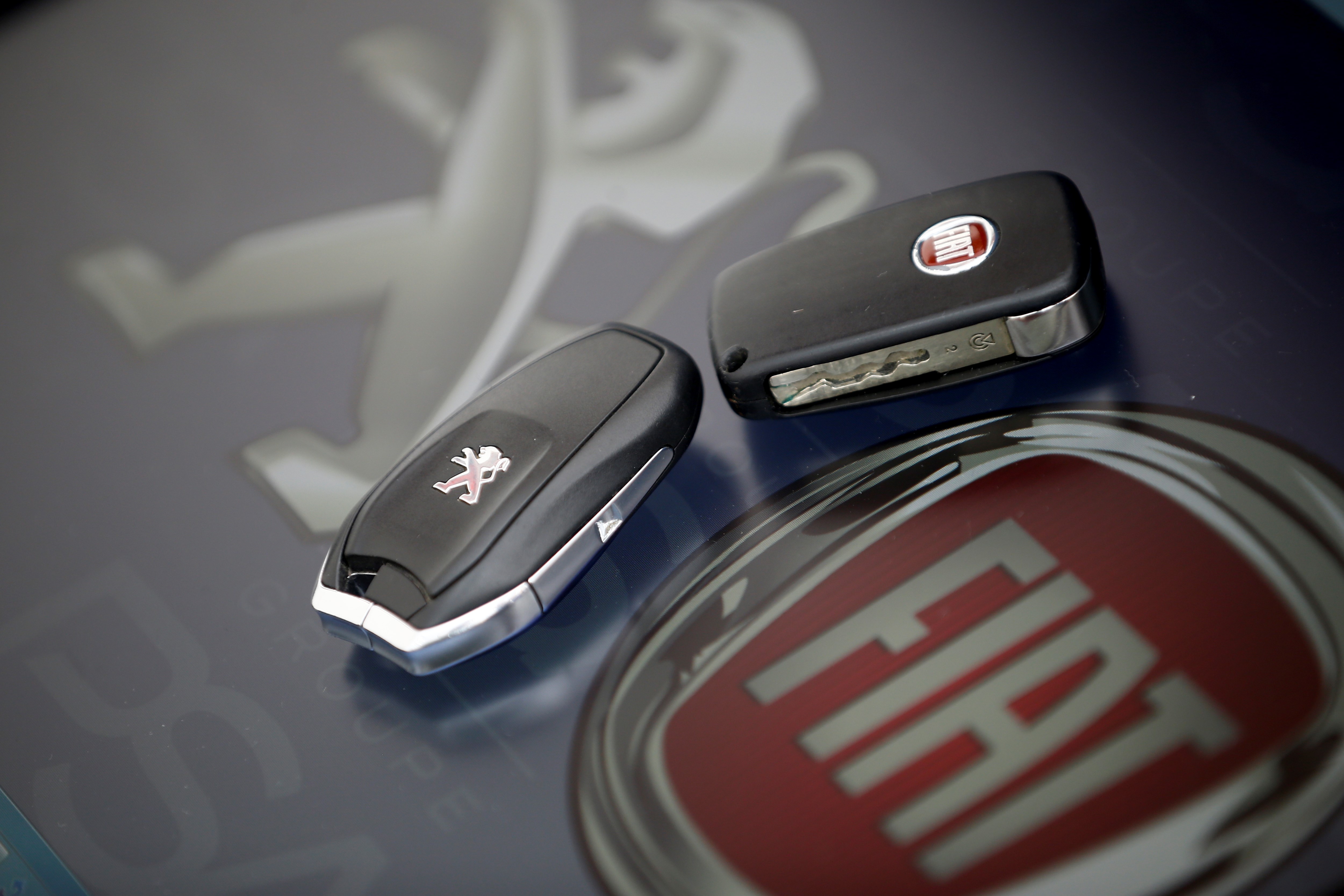Fiat Chrysler and Peugeot to merge in giant deal
New carmaker would become the third largest in the world


A free daily email with the biggest news stories of the day – and the best features from TheWeek.com
You are now subscribed
Your newsletter sign-up was successful
Italian-American car manufacturer Fiat Chrysler and PSA Group, the maker of Peugeot cars, have announced a binding deal for a merger that would create a $50bn (£42bn) trans-Atlantic car company.
Billed as a “50-50 merger”, the tie-up announced on Wednesday would make the group the world’s third largest carmaker, uniting brands such Fiat, Jeep, Dodge, Ram and Maserati with the likes of Peugeot, Citroën, Opel, and Vauxhall.
The transaction is expected to be finalised in the next 12 to 15 months, and, the companies said, will result in a manufacturer - whose name is in development, but has yet to be revealed - selling 8.7 million vehicles a year with revenues of nearly €170bn (£145bn).
The Week
Escape your echo chamber. Get the facts behind the news, plus analysis from multiple perspectives.

Sign up for The Week's Free Newsletters
From our morning news briefing to a weekly Good News Newsletter, get the best of The Week delivered directly to your inbox.
From our morning news briefing to a weekly Good News Newsletter, get the best of The Week delivered directly to your inbox.
John Elkann, Fiat Chrysler’s chairman, will become chairman of the new company. Five members of its board will be nominated by Fiat Chrysler, and the other five by PSA.
The eleventh board seat will be handed to the most prominent figure at the heart of the deal - PSA Chief Executive Carlos Tavares.
Tavares, who Reuters describes as a “car fanatic”, drove PSA’s successful acquisition of Opal from General Motors in 2017, and will be CEO for an initial five-year term.
“The car industry is under pressure to consolidate to deal with overcapacity and the huge investments needed in new technology. But it takes big personalities to forge transnational deals,” says the Financial Times. “The intense, frugal Portuguese businessman has the skills needed to cut deals and turn businesses round.”
A free daily email with the biggest news stories of the day – and the best features from TheWeek.com
Tavares described the challenges facing the industry as “really, really significant”, adding: “We are doing this because we believe that we will be stronger to face the future challenges of our industry than alone.”
–––––––––––––––––––––––––––––––For a round-up of the most important business stories and tips for the week’s best shares - try The Week magazine. Get your first six issues free–––––––––––––––––––––––––––––––
However, the merger will be scrutinised by regulators in many countries.
“This is obviously a huge consolidation of the sector that will surely require a considerable effort in securing competition [approval] across a variety of jurisdictions and especially the European Union,” said Jonathan Branton, head of competition at global legal business DWF.
In a move designed to appease US regulators, the companies also revealed that state-run Chinese automaker Dongfeng Group had agreed to sell part of its 12.2% stake in PSA back to the French company.
Dongfeng will now hold a 4.5% stake in the new group - with no board seat entitlement.
The deal contains other enticements to make it more acceptable to regulators in the US and Europe, but was also designed to secure the votes of shareholders, who are likely to vote on the deal next autumn.
For example, The Wall Street Journal reports: “Fiat Chrysler’s Comau division, a maker of robotics technology used in vehicle manufacturing, will be spun off after the deal completes, rather than before as previously planned. That will allow both PSA and Fiat Chrysler shareholders to benefit from any sale.”
William Gritten is a London-born, New York-based strategist and writer focusing on politics and international affairs.
-
 The environmental cost of GLP-1s
The environmental cost of GLP-1sThe explainer Producing the drugs is a dirty process
-
 Greenland’s capital becomes ground zero for the country’s diplomatic straits
Greenland’s capital becomes ground zero for the country’s diplomatic straitsIN THE SPOTLIGHT A flurry of new consular activity in Nuuk shows how important Greenland has become to Europeans’ anxiety about American imperialism
-
 ‘This is something that happens all too often’
‘This is something that happens all too often’Instant Opinion Opinion, comment and editorials of the day
